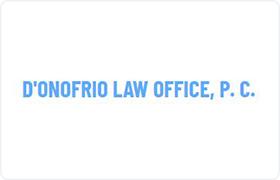PER STIRPES
Under a will, a method of determining who inherits property when a joint beneficiary has died before the willmaker, leaving living children of his or her own. F...
(more...)Under a will, a method of determining who inherits property when a joint beneficiary has died before the willmaker, leaving living children of his or her own. For example, Fred leaves his house jointly to his son Alan and his daughter Julie. But Alan dies before Fred, leaving two young children. If Fred's will states that heirs of a deceased beneficiary are to receive the property 'per stirpes,' Julie will receive one-half of the property, and Alan's two children will share his half in equal shares (through Alan by right of representation). If, on the other hand, Fred's will states that the property is to be divided per capita, Julie and the two grandchildren will each take a third.
 x
x

 John D'Onofrio Pittsburgh, PA
John D'Onofrio Pittsburgh, PA Practice AreasExpertise
Practice AreasExpertise
